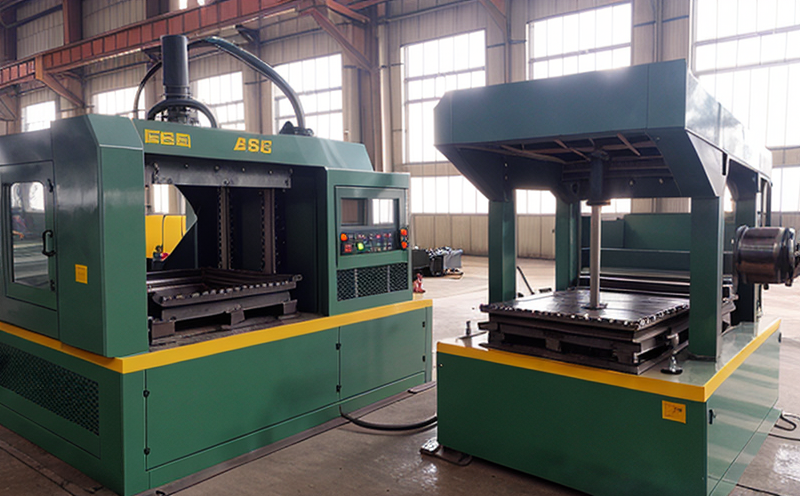ISO 2372 Vibration Testing of Forging Equipment
The International Organization for Standardization (ISO) has set forth a specific protocol in ISO 2372 for vibration testing. This standard is particularly relevant to the industrial manufacturing and processing sectors, where equipment such as forging presses, stamping machines, and forming tools are subjected to rigorous mechanical stress during operation. The purpose of ISO 2372 is to ensure that these critical pieces of machinery meet stringent performance criteria, especially in terms of their vibration characteristics.
Vibration testing plays a crucial role in the quality control and reliability assurance processes for industrial equipment. It helps identify potential issues early on, thereby preventing costly downtime and ensuring long-term operational efficiency. Forging presses, stamping machines, and forming tools are particularly susceptible to wear and tear due to their continuous operation under high stress conditions. By subjecting these machines to vibration tests according to ISO 2372, manufacturers can validate that the equipment is operating within acceptable limits.
The test procedure outlined in ISO 2372 involves mounting the machine on a suitable stand or platform and applying controlled levels of vibratory force. The aim is to simulate real-world conditions as closely as possible. Sensors are then attached to key components of the machinery, such as motors, frames, and moving parts, to measure displacement, velocity, and acceleration over time. Data analysis plays a critical role in interpreting these measurements; deviations from specified limits may indicate areas requiring attention or improvement.
One of the primary benefits of ISO 2372 compliance is enhanced equipment reliability. By identifying potential problems before they escalate into major issues, manufacturers can implement corrective measures promptly. This not only extends the lifespan of the equipment but also reduces maintenance costs and unplanned downtime. Additionally, adherence to this international standard demonstrates a commitment to maintaining high standards of quality and safety within the industry.
Another significant advantage is improved product performance consistency across different batches or models produced by various manufacturers. Since ISO 2372 ensures that all tested equipment meets the same stringent criteria, it fosters greater trust among buyers and users who rely on reliable machinery for their production processes.
- Better Quality Assurance: Ensures consistent performance across different batches or models.
- Increased Safety: Identifies potential risks early to prevent accidents or injuries during operation.
- Enhanced Reputation: Demonstrates a commitment to maintaining high standards of quality and safety within the industry.
- Potential Cost Savings: By identifying issues before they become major problems, maintenance costs are reduced.
In summary, ISO 2372 vibration testing is essential for ensuring that forging equipment operates reliably under demanding conditions. It contributes significantly to maintaining quality standards and improving overall operational efficiency in the industrial manufacturing sector.





